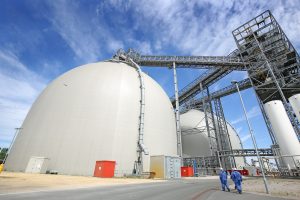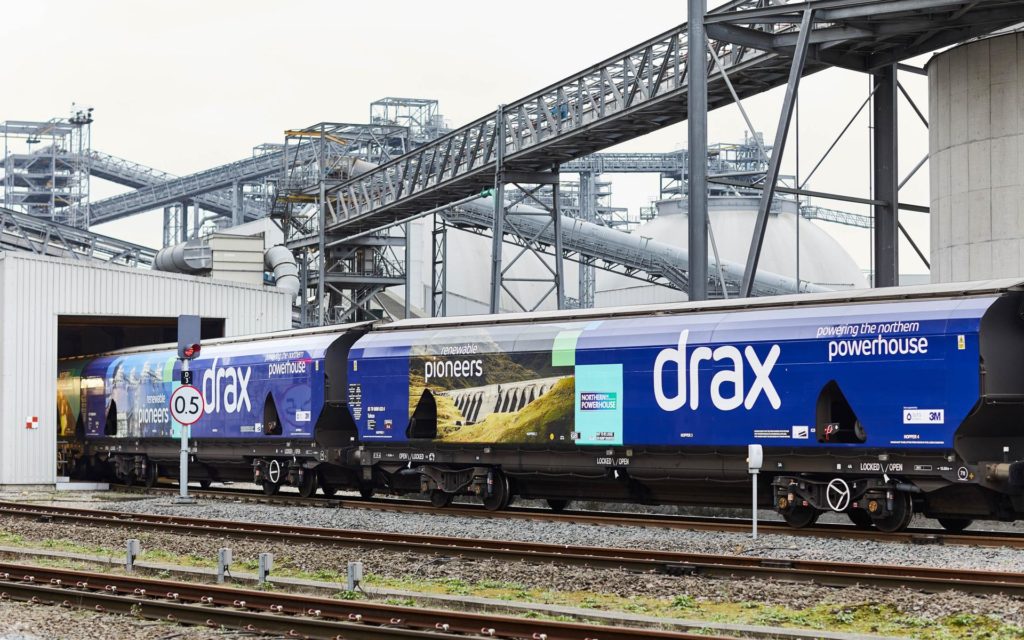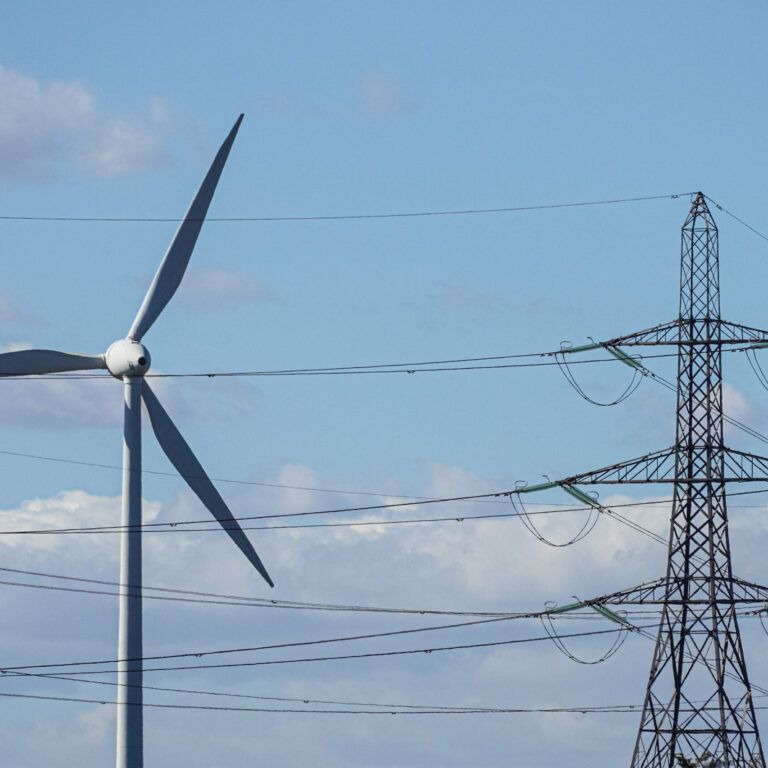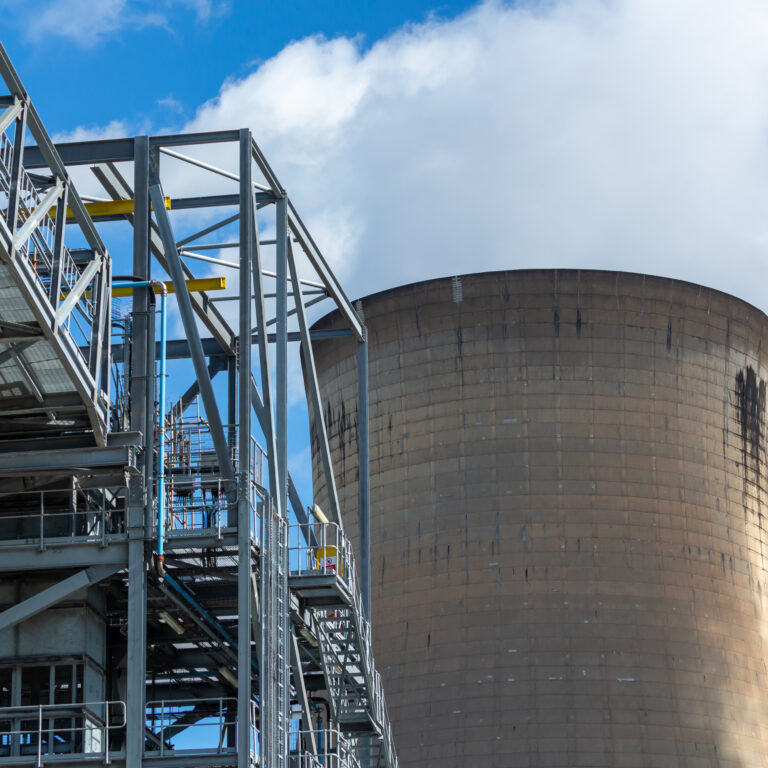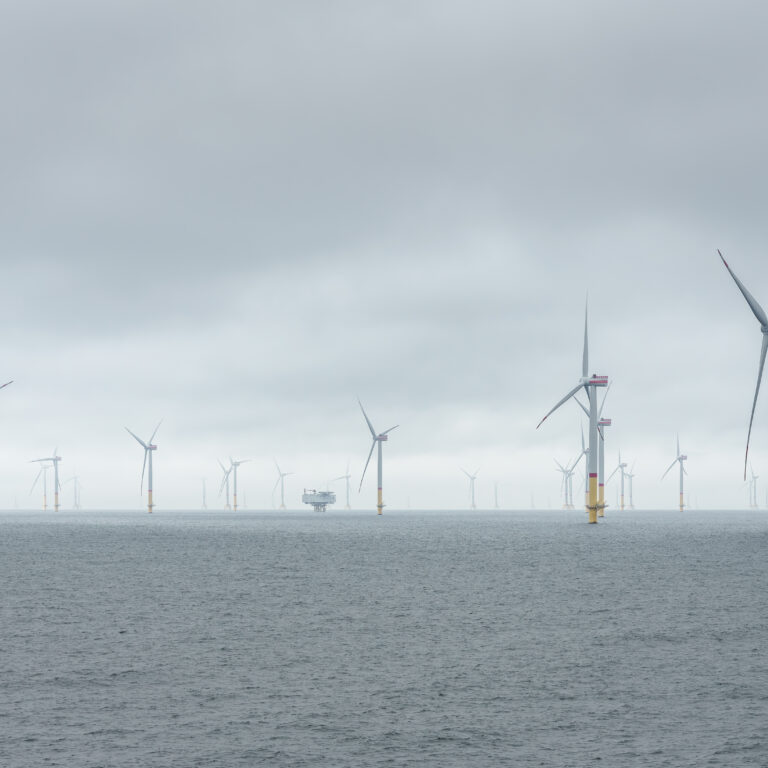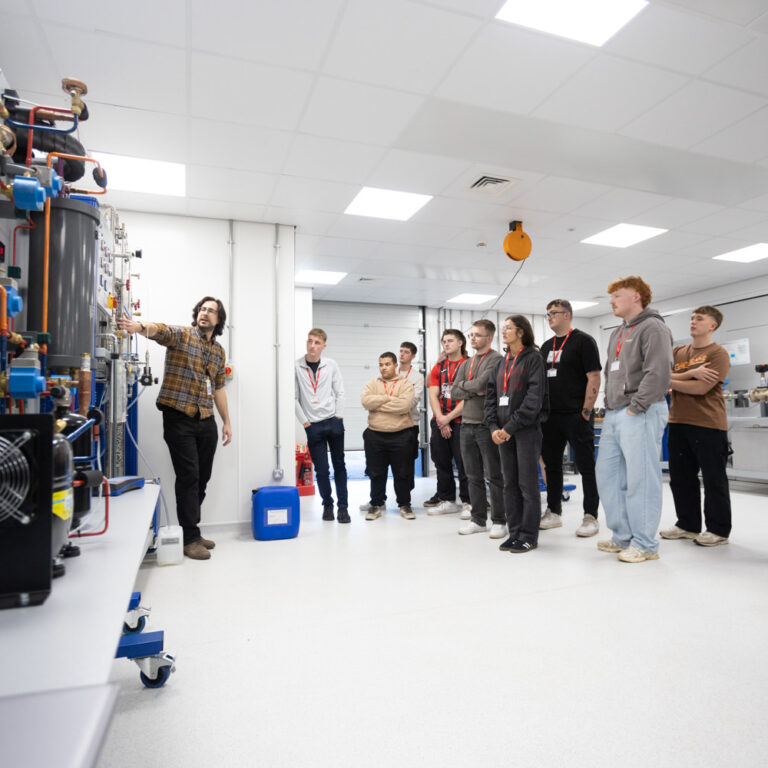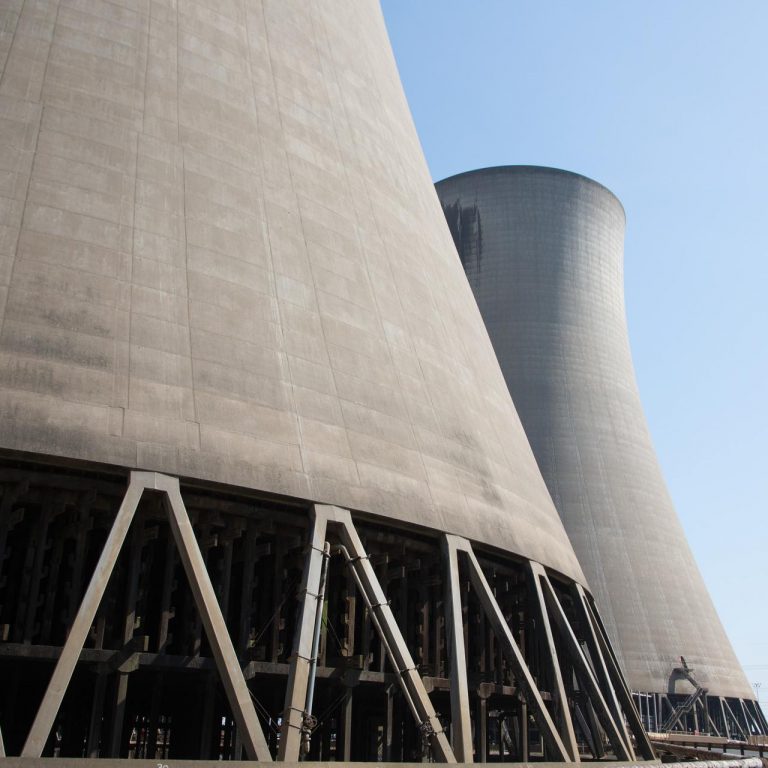Drax, the UK’s biggest generator of renewable electricity, is expanding its rail fleet by investing in 30 new rail wagons to deliver the biomass it needs to generate enough renewable power for four million UK homes at its North Yorkshire power station.
The upgraded high-capacity wagons manufactured by British firm WH Davis will help to further reduce Drax’s carbon emissions and make its biomass supply chain more resilient and efficient.
Drax’s fleet of 225 rail wagons, the first of their kind in the world, were designed and developed by Lloyd’s Register Rail (now Ricardo Rail) and WH Davis based in Mansfield – the UK’s last independent freight wagon manufacturer.
The innovative design of these new wagons has increased the amount of biomass able to be transported in each wagon by 30 per cent, allowing them to carry 71.6 tonnes of biomass each, reducing the number of rail journeys required and reducing supply chain emissions.
The first of 30 new wagons are expected to come off the production line early next year and go into operation delivering biomass from the Port of Tyne to Drax, reducing emissions on this route by over 25%.
Bruce Heppenstall, Drax Plant Director, said: “Our biomass trains deliver up to 30,000 tonnes of biomass to the power station each day, enabling Drax to power millions of homes and businesses across the UK with reliable, renewable electricity and support energy security.
“It’s therefore vital that we have a robust supply chain and investing in these new wagons will further increase our resilience and cut carbon emissions on our Tyne to Drax rail route by more than a quarter, whilst continuing to support thousands of jobs across the North, including at WH Davis and Davis Wagon Services’ facilities.”
Since it converted two thirds of its power station to use sustainable biomass instead of coal, Drax has transformed its business to become Europe’s biggest decarbonisation project and the UK’s largest single site renewable power generator, playing a critical role in energy security.
This transformation has also preserved and supported jobs – with Drax’s operations supporting almost 6,000 jobs across the North at a time when other power stations have closed.
Each train is able to carry sufficient biomass for Drax to generate enough reliable renewable electricity to supply around 800 UK homes for a year.
Jonathan Hamer, Managing Director of WH Davis, said: “These additional 30 new biomass wagons reflect the strength and depth of the Davis Group, including Davis Wagon Services, to provide a full turnkey solution for customers from manufacture to maintenance. This contract builds on the previous supply to Drax for its unique biomass wagon fleet requirements and shows their confidence in the quality and reliability of the WH Davis product.
“As the only rail freight manufacturer in the UK it is important for us to win such contracts to ensure the continuity of skills within our locally based work force. Drax’s confidence in us allows this to continue and develop.”
Mark Fletcher, Member of Parliament for Bolsover, said: “This is a fantastic investment which will strengthen the UK’s energy security whilst supporting local skilled manufacturing jobs.
“These new wagons will help keep the lights on for many years to come, and they are a real example of how British companies can lead the world in innovation and engineering; I am proud to have such a great company based in the Bolsover Constituency.”
Drax’s biomass comes into the ports on the east and west coasts from North America and Europe, and is brought to the power station by rail, because it is more efficient than road transportation.
Drax is committed to boosting the region’s economy by investing in skills, innovation, transport, and culture. A recent study found that Drax contributes over £700 million to the North’s economy and supports close to 6,000 jobs.
ENDS
Photo caption: A biomass train arriving at Drax Power Station
Media contacts:
Megan Hopgood
Communications Officer
E: megan.hopgood@drax.com
T: 07936 350 175
Notes to editors:
- By using biomass, Drax has delivered carbon savings of almost 100 per cent compared to when the power station only used coal to generate electricity.
- More than 95% of the electricity Drax Group produced in 2021 was renewable from its biomass and hydro operations – enough to power five million households.
- The majority of the biomass Drax uses comes from North America and Europe on ships to ports on the east and west coasts of the UK (Immingham, Hull, Port of Tyne and Liverpool). It is then taken to the power station from the ports by rail.
- Drax has an average of 17 biomass trains arriving at the power station per day (over a six-day working week) in order to supply the pellets needed to generate and supply 11 per cent of the UK’s renewable electricity.
- The fuel is transported to Drax via rail rather than road, to further reduce carbon emissions, as it is more efficient than road transportation.
- Independent research by Oxford Economics using 2021 data showed that Drax supported over 17,800 jobs across the country – almost 6,000 of which were across the North of England (Yorkshire and Humber, North West and North East). In addition Drax generated £749m for the Northern regional economy and £1.8 billion for the whole of the UK.
- Drax continues to progress its plans to deliver a green jobs boom in the UK in the years ahead by becoming a world leader in negative emissions technology BECCS and investing billions of pounds in renewable energy projects.
- Drax aims to source 80% of the services and materials for BECCS from British businesses, and it recently signed an agreement with British Steel to explore opportunities to source steel for the construction from the firm’s Scunthorpe and Teesside plants.
- Thousands of jobs could start being created at Drax in just a couple of years’ time, with work to deploy BECCS at Drax Power Station set to get underway as soon as 2024, with around 10,000 jobs being created and supported during the project’s peak.
About Drax
Drax Group’s purpose is to enable a zero carbon, lower cost energy future and in 2019 announced a world-leading ambition to be carbon negative by 2030, using bioenergy with carbon capture and storage (BECCS) technology.
Drax’s around 3,000 employees operate across three principal areas of activity – electricity generation, electricity sales to business customers and compressed wood pellet production and supply to third parties. For more information visit www.drax.com
Power generation:
Drax owns and operates a portfolio of renewable electricity generation assets in England and Scotland. The assets include the UK’s largest power station, based at Selby, North Yorkshire, which supplies five percent of the country’s electricity needs.
Having converted Drax Power Station to use sustainable biomass instead of coal it has become the UK’s biggest renewable power generator and the largest decarbonisation project in Europe. It is also where Drax is piloting the groundbreaking negative emissions technology BECCS within its CCUS (Carbon Capture Utilisation and Storage) Incubation Area.
Its pumped storage, hydro and energy from waste assets in Scotland include Cruachan Power Station – a flexible pumped storage facility within the hollowed-out mountain Ben Cruachan.
The Group also aims to build on its BECCS innovation at Drax Power Station with a target to deliver 4 million tonnes of negative CO2 emissions each year from new-build BECCS outside of the UK by 2030 and is currently developing models for North American and European markets.
Pellet production and supply:
The Group has 18 operational pellet plants and developments with nameplate production capacity of around 5 million tonnes a year.
Drax is targeting 8 million tonnes of production capacity by 2030, which will require the development of over 3 million tonnes of new biomass pellet production capacity. The pellets are produced using materials sourced from sustainably managed working forests and are supplied to third party customers in Europe and Asia for the generation of renewable power.
Drax’s pellet plants supply biomass used at its own power station in North Yorkshire, England to generate flexible, renewable power for the UK’s homes and businesses, and also to customers in Europe and Asia.
Customers:
Drax supplies renewable electricity to UK businesses, offering a range of energy-related services including energy optimisation, as well as electric vehicle strategy and management.
To find out more go to the website www.energy.drax.com






